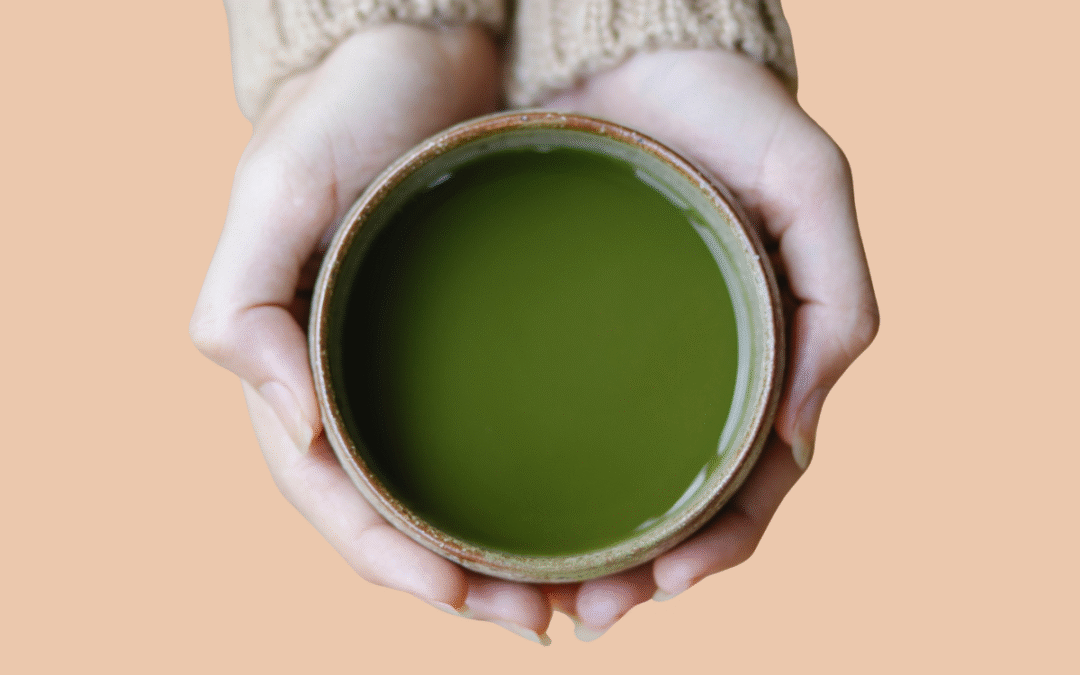If you’ve spent any time browsing the wellness aisle (or Instagram), you’ve likely noticed the matcha wave sweeping through coffee shops and kitchens. But this isn’t just another fleeting trend. High-quality matcha has some serious health benefits that go far beyond the pretty green latte art.
Whether you’re looking to boost your energy, support hormone health, or simply enjoy a moment of calm focus, matcha might just become your new go-to ritual.
What Makes Matcha Different from Regular Green Tea?
Matcha is made from whole green tea leaves that are shade-grown, carefully stone-ground, and whisked into water or milk. This means you’re consuming the entire leaf, not just steeping it. As a result, matcha is significantly higher in antioxidants, amino acids, and plant compounds than a standard cup of green tea.
The quality of matcha matters. High-grade, ceremonial matcha is vibrant green, smooth, and slightly sweet. It is free from the bitterness or dull yellow color you’ll often see in lower-grade products. Poor-quality matcha can contain contaminants, heavy metals, or pesticides, so sourcing from reputable producers is key.
Hormone Health and Matcha: A Closer Look
While matcha isn’t a magic fix for hormonal imbalances, its unique combination of antioxidants, amino acids, and caffeine can have a positive ripple effect on your endocrine system.
Here’s what the research suggests:
-
May help regulate androgens in certain conditions
Some studies show that green tea catechins, especially EGCG (epigallocatechin gallate), can help modulate androgen levels. For people with conditions like PCOS, where excess androgens can disrupt cycles and skin health, EGCG may help reduce androgen activity and improve hormone signaling. -
Supports healthy insulin sensitivity
Blood sugar swings can worsen hormone imbalances, particularly in PCOS and perimenopause. Matcha’s catechins may help improve insulin sensitivity, which in turn can support balanced sex hormones. -
Gentle energy without the cortisol spike
Thanks to its unique combination of caffeine and L-theanine, matcha provides a steady, calm energy boost without the jittery spike-and-crash of coffee. Stable energy helps keep stress hormones like cortisol from swinging wildly, which is especially important if you’re navigating adrenal fatigue or HPA axis dysregulation. -
Rich in antioxidants to reduce inflammation
Chronic inflammation can interfere with hormone signaling and ovulation. Matcha is loaded with antioxidants that help combat oxidative stress, which supports healthier reproductive and metabolic function.
Other Science-Backed Benefits of Matcha
-
Brain health and focus – The L-theanine in matcha increases alpha brain waves, linked to calm alertness and better concentration.
-
Heart health – Catechins may help improve cholesterol levels and reduce blood pressure.
-
Metabolic support – Some research shows matcha can slightly boost fat oxidation during exercise, making it a supportive tool for metabolic health.
-
Detoxification – Shade-growing increases chlorophyll content, which can support gentle detox pathways in the liver.
How to Choose the Right Matcha
Not all matcha is created equal. Look for:
-
Ceremonial grade for daily drinking (bright, vibrant green with a fine texture)
-
Organic certification when possible, to reduce pesticide exposure
-
Lab testing for heavy metals (important since tea plants can absorb contaminants from soil)
-
Freshness – matcha can lose potency if stored too long; buy from brands with high turnover and airtight packaging
A Gentle Reminder on Balance
While matcha is generally safe for most people, it does contain caffeine, usually around 60–70 mg per serving. If you’re sensitive to caffeine, pregnant, or managing adrenal fatigue, start with smaller amounts and see how your body responds.
Also, if you have iron deficiency, consider having matcha away from iron-rich meals, as tea catechins can slightly reduce iron absorption.
Here’s Dr. Merritt’s favorite way to brew up a cup of matcha tea
Ingredients:
- 1 teaspoon (or less if you’re sensitive to caffeine) Organic Matcha.
- 1 pinch of vanilla bean powder
- 2 oz hot water
- 6 oz almond or coconut milk (or mix the two!), warmed
- 1 t honey
- 1 squeeze of fresh orange, or a 1/4 teaspoon of orange extract
To Prepare:
Heat the 2 oz of water, then whisk in the matcha. Once thoroughly blended, add in the vanilla, honey, and orange, and whisk again. Then add the warmed milk of choice, stir, and enjoy!
Written by Dr. Merritt Jones, LAc, DAIM, FABORM Clinic Director & Founder | Natural Harmony Reproductive Health Dr. Jones is a board-certified reproductive acupuncturist with advanced training in integrative medicine. She founded Natural Harmony to provide compassionate, evidence-informed care for anyone navigating fertility and reproductive health.
Medically reviewed by the author. Last reviewed: February 2026.


